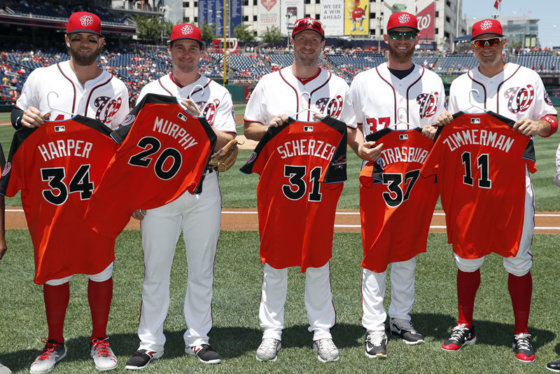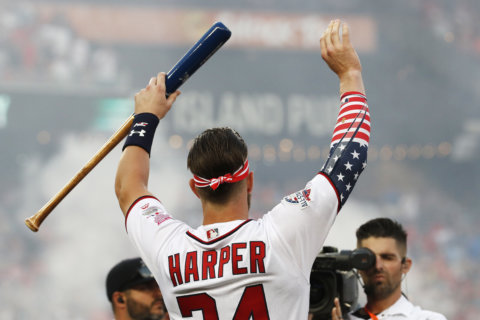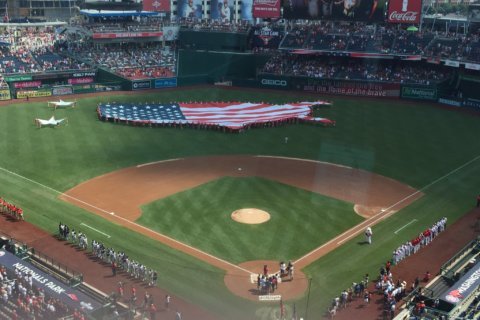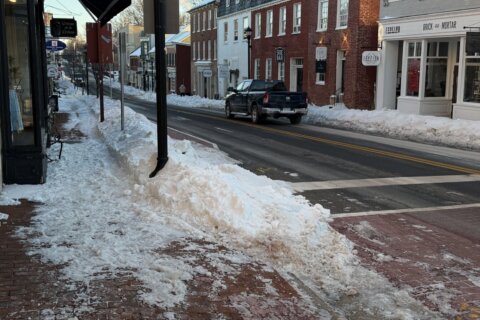What rain? #NatsPark for the #AllStarGame . pic.twitter.com/lJ9GnTaGbt
— Dave Preston (@davpresto) July 17, 2018
Suboptimal baseball conditions pic.twitter.com/kxyweeMo19
— Noah Frank (@NoahFrankWTOP) July 17, 2018
— Noah Frank (@NoahFrankWTOP) July 17, 2018
You guys pic.twitter.com/pqHNsSRiLH
— Noah Frank (@NoahAFrank) July 17, 2018
Dateline #NatsPark. First pitch coming up in under five hours...in theory. #AllStarGame pic.twitter.com/cVs76OJPIk
— Dave Preston (@davpresto) July 17, 2018
Leaky press area at #NatsPark for the #AllStarGame . pic.twitter.com/2ZGLkkCbI0
— Dave Preston (@davpresto) July 17, 2018
Introducing Lake National... at the #AllStarGame pic.twitter.com/ZASIL2sKXr
— Dave Preston (@davpresto) July 17, 2018
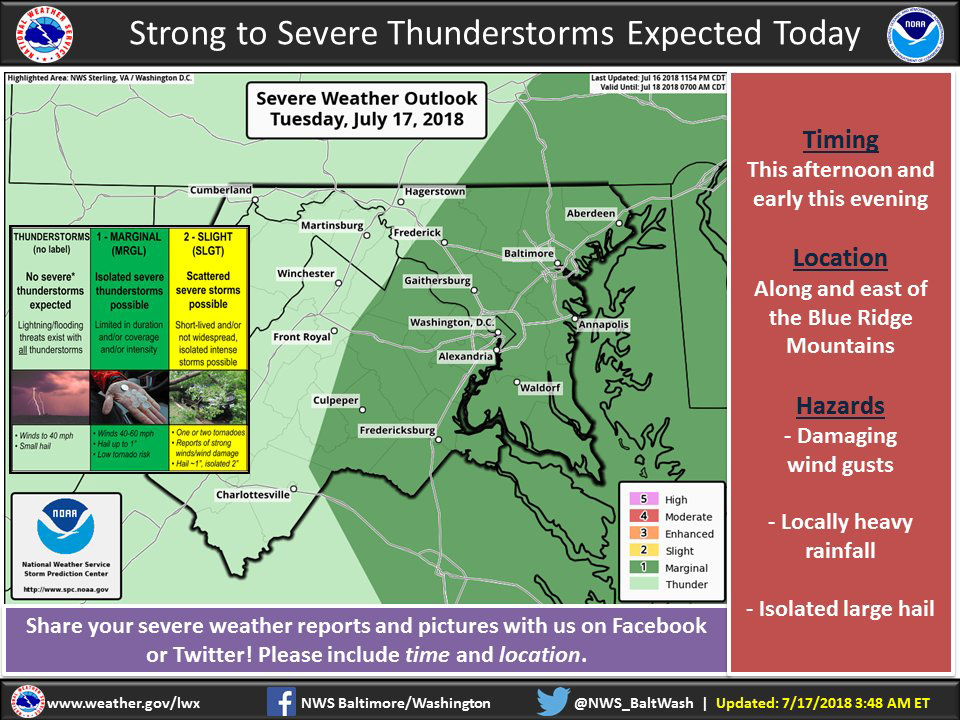
Thunderstorms mainly after 2pm today. Looks much better by 8pm for the start of the All-Star Game! Can't rule out a stray shower though … @nbcwashington pic.twitter.com/lMvK06U34c
— Sheena Parveen (@SheenaParveen) July 17, 2018
Big day here in DC! The MLB All-Star game is this evening and rain chances are VERY high leading up to the 8pm first-pitch. They should be able to play ball, but there could be a delay at the start. Rain chances start falling around 8. Fingers Crossed. pic.twitter.com/5uEV8JTIoN
— Chuck Bell (@ChuckBell4) July 17, 2018
Trying to plan your day and wondering when today's storm chances peak at your place? Take a look at this forecast model. The MLB #AllStar game this evening "COULD" be facing a delay or two but they will, most likely, be able to #PlayBall ~!
— Chuck Bell (@ChuckBell4) July 17, 2018
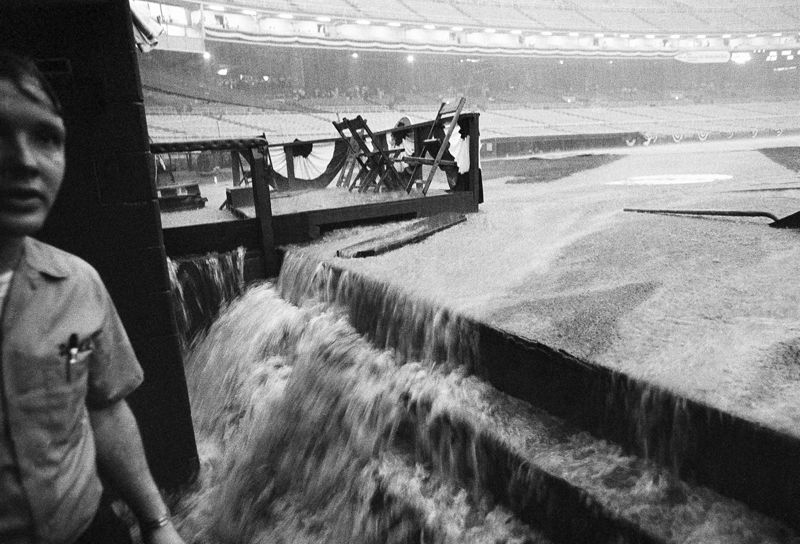
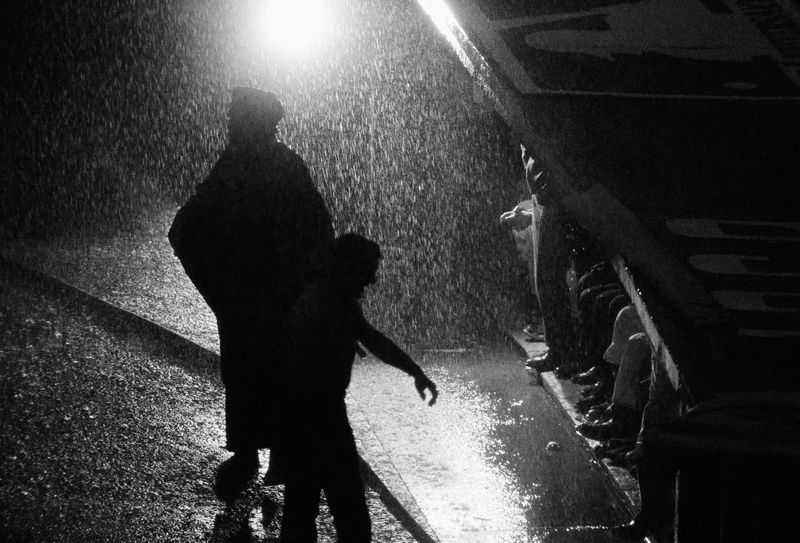
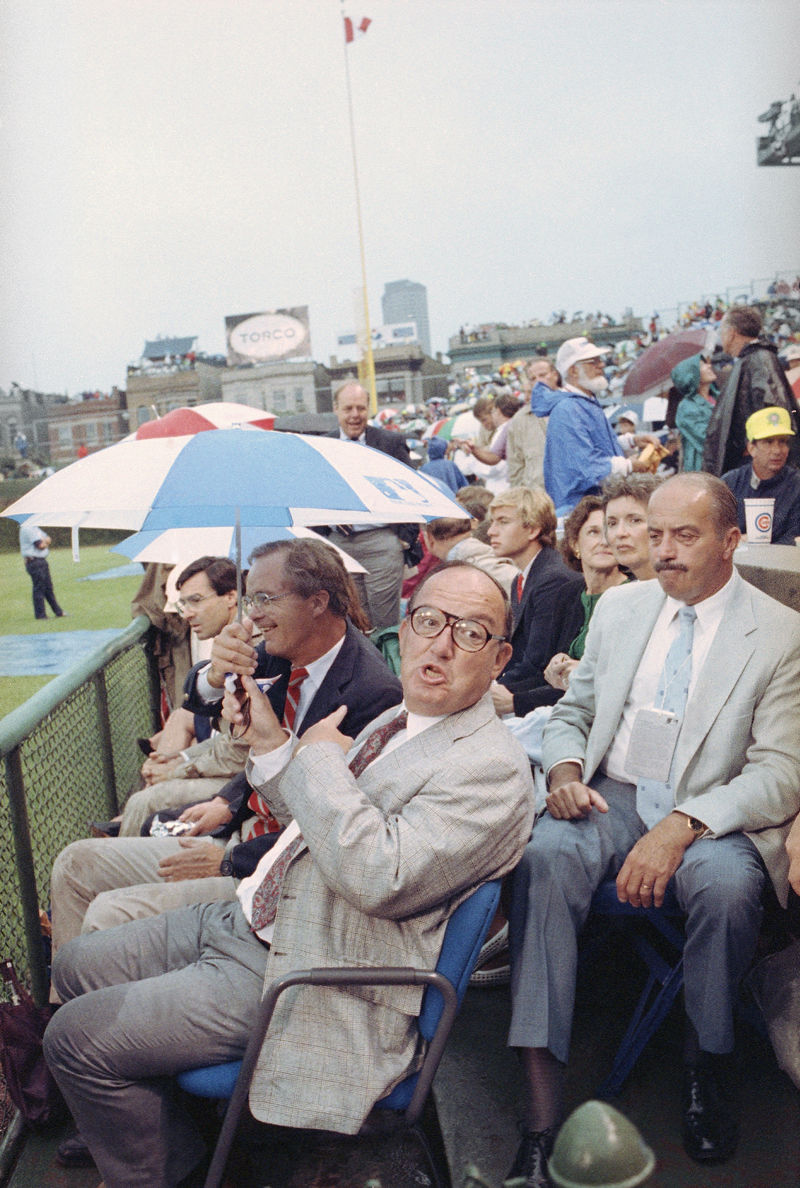
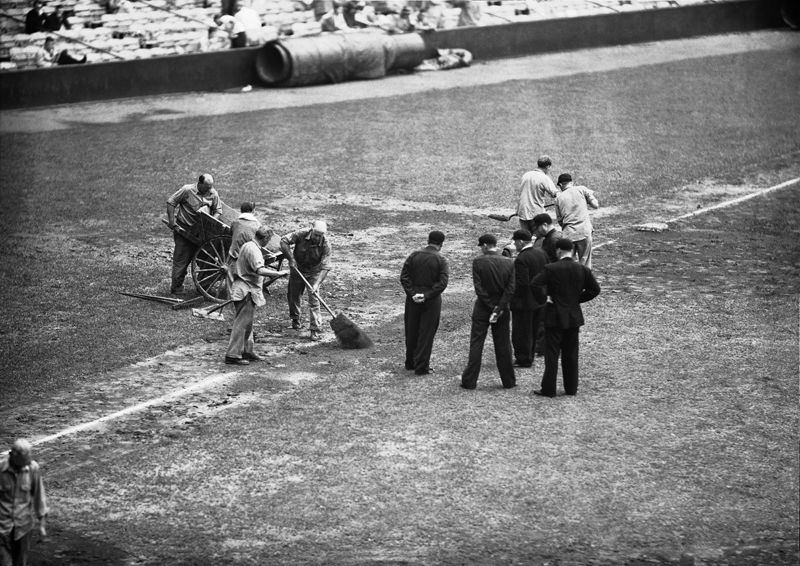
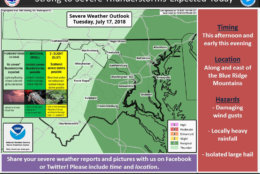
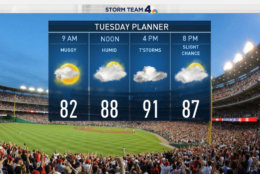
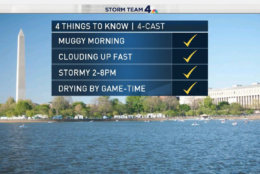
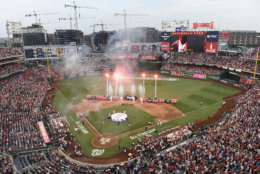
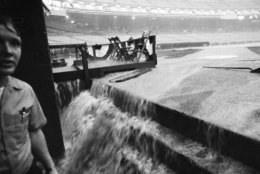
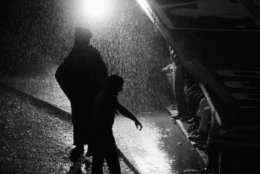
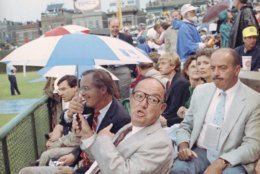
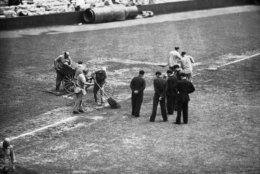
WASHINGTON — As D.C. gets ready to host its first MLB All-Star Game since 1969, a lot of people will have their eyes on the skies. Rain is in the forecast.
Trying to plan your day and wondering when today’s storm chances peak at your place? Take a look at this forecast model. The MLB #AllStar game this evening “COULD” be facing a delay or two but they will, most likely, be able to #PlayBall ~!
— Chuck Bell (@ChuckBell4) July 17, 2018
Storm Team 4 meteorologist Chuck Bell said there is an 80 percent chance for showers and thunderstorms between 2 p.m. and 8 p.m.
That could, at the very least, threaten to push back the start of the All-Star Game.

Of course a rain delay, or even a rainout, is not that uncommon in baseball.
There’s a whole set of rules that have been around for a long time about what happens when a game is delayed, suspended or canceled. Before the game starts, the home team decides whether a game starts on time or is delayed.
After the game starts, it’s all up to the umpires, although MLB rules encourage the umpires to do everything they can to try and make sure the game is completed.
Of course, the All-Star Game isn’t just any other baseball game. It’s one of the biggest events of the season and a chance for MLB to showcase the very best players in the game.
But MLB is still subject to the whims of mother nature.
When D.C. last hosted the All-Star Game in 1969, it was supposed to be a night game played on Tuesday, July 22, 1969.
But there was one problem: It rained. A lot.

There was so much rain that it started pouring off the field into the dugouts and made the steps down to the dugout look like a small waterfall.
The game had to be postponed, the first and last time an All-Star Game was postponed because of rain. The game was played during the next day and baseball-reference.com said this was the last time the All-Star Game was played during the day rather than prime-time.
Rain has also shortened some All-Star Games.
When the Philadelphia Phillies hosted the All-Star Game in 1952 at old Shibe Park, the game had to be called after just five innings because of rain.
The second All-Star Game of the 1961 season (From 1959 to 1962, two All-Star Games were played each season) at Fenway Park in Boston ended in a 1-1 tie after nine innings because of rain.
More recently, the 1990 All-Star Game at Wrigley Field saw a rain delay that was a little bit longer than one hour, but the game was still played.
The good news for MLB and baseball fans everywhere is that even with the threat of rain, it doesn’t look like it will have that much of an impact on the game.
Big day here in DC! The MLB All-Star game is this evening and rain chances are VERY high leading up to the 8pm first-pitch. They should be able to play ball, but there could be a delay at the start. Rain chances start falling around 8. Fingers Crossed. pic.twitter.com/5uEV8JTIoN
— Chuck Bell (@ChuckBell4) July 17, 2018
“The weather will be much improved by the start of the All-Star Game,” Storm Team 4 meteorologist Sheena Parveen said. “We can’t rule out a lingering shower by 8 p.m., but it wouldn’t be anything substantial.”

